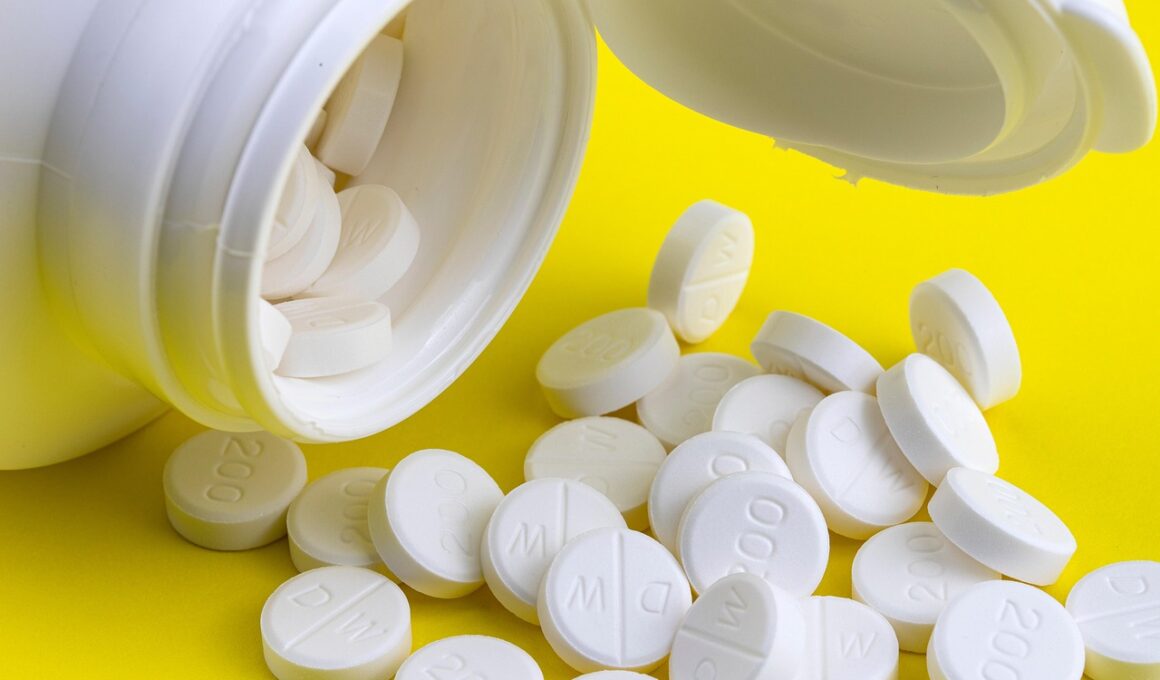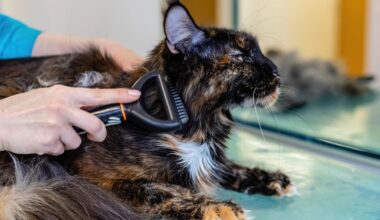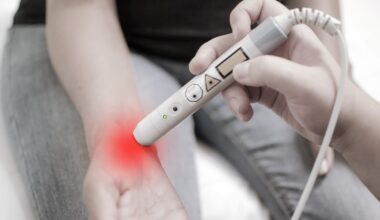Supplements to Aid Cats with Inflammatory Bowel Disease
Inflammatory Bowel Disease (IBD) is a common condition affecting cats, causing digestive disturbances. Cats with IBD often experience symptoms such as vomiting, diarrhea, and weight loss, necessitating dietary adjustments. It’s essential to approach their diet with care, ensuring it meets their nutritional needs while being gentle on their digestive systems. Supplements can play a vital role in managing IBD, aiding in reducing inflammation and improving gastrointestinal health. Adding specific nutrients can help support their recovery and overall well-being. Essential fatty acids, including Omega-3, are particularly beneficial due to their anti-inflammatory properties. Probiotics are also a critical component, as they promote healthy gut flora, enhancing digestive health. Moreover, vitamins and minerals tailored to support immune function can be highly advantageous. Consulting with a veterinarian is crucial to tailor the supplementation to your cat’s unique needs. They will consider factors like the severity of the disease and your cat’s overall health, helping you choose the most appropriate supplements available. Regular monitoring and adjustments may be necessary as dietary needs change over time.
Including probiotics can provide significant benefits. Probiotics help restore balance in the gut flora, especially after antibiotic treatments or episodes of diarrhea, which may accompany IBD. One popular choice is Lactobacillus acidophilus, a naturally occurring bacterium found in fermented foods. Additionally, certain prebiotics complement probiotics effectively, enhancing their beneficial effects and supporting gut health. Some natural sources include chicory root and brown rice, making them excellent additions to a cat’s daily diet. Omega-3 fatty acids, derived from fish oil, serve as another effective supplement, providing anti-inflammatory benefits and contributing to overall skin and coat health. Many pet owners report noticeable improvements in their cats’ energy levels and general wellness when they incorporate these fatty acids into their diets. Furthermore, vitamins such as B vitamins and vitamin E can assist in maintaining a robust immune system. These vitamins can be found in specially formulated cat foods or as standalone vitamin supplements. Regular consultations with a veterinarian will ensure the proper dosage and form of each supplement. Always monitor your cat for any adverse reactions following changes to their diet.
In addition to tailored supplements, proper hydration is crucial for cats with IBD. Dehydration can exacerbate symptoms and lead to additional complications. Always ensure that fresh and clean water is readily available. Adding moisture to their food can help maintain hydration levels as well as improve digestive comfort. Specialized moist cat food can be an excellent option for these cats, as it often contains higher water content. Opt for recipes that are both palatable and composed of high-quality ingredients. This will not only encourage healthier eating habits but also provide sufficient hydration. Many cat owners find that gradually transitioning to a new diet can ease their pets’ adjustment period. Monitoring fiber intake is also essential in managing IBD. For some cats, low-residue diets are beneficial as they contain reduced fiber, leading to less strain on the digestive system. However, for others, fiber supplementation may be required to help regulate digestion. Consulting with a veterinarian can help determine the best fiber approach based on your cat’s specific needs, helping to choose the right balance for their recovery.
Role of Antioxidants in Managing IBD
Antioxidants can also play a vital role in managing IBD in cats. They help combat oxidative stress in the body, which is often elevated in inflammatory conditions. By reducing oxidative stress, antioxidants support overall cellular health and aid in reducing inflammation levels. Common sources of antioxidants include vitamin C, vitamin E, and various phytochemicals found in fruits and vegetables. Some suitable options for cats include blueberries and cranberries, which can be added to their food in moderation. It is crucial, however, to consult the vet before introducing any new foods to your cat’s diet. The careful selection of antioxidant-rich foods or supplements may help improve their immune response, making it easier for the body to manage IBD. Additionally, it is essential to ensure that any potential allergens or irritants are avoided in their diet. Identifying these ingredients may require eliminating certain foods and monitoring symptom changes to find a suitable dietary balance. A well-balanced diet enriched with appropriate antioxidants can be a significant factor in supporting the health of cats with IBD, leading to improved overall quality of life.
When considering supplements for your cat, one must be aware of the potential side effects or interactions with other medications. It is crucial to keep your veterinarian informed about any supplements being added to your cat’s regimen to avoid complications. Some supplements may interfere with prescribed medications, leading to adverse side effects. Moreover, choosing reliable brands with high-quality products is essential. Look for third-party testing or certifications to ensure the integrity of the supplements you select. Evaluating the ingredient lists for fillers, artificial additives, and potential allergens is necessary to ensure your cat’s health and safety during treatment. Natural supplements tend to have fewer side effects and are often better tolerated by sensitive cats. Regular veterinary visits will allow for adjustments to your cat’s plan, ensuring its efficacy and minimizing any risks of over-supplementation. Response to treatment may vary among individual cats, so close monitoring will be essential. Over time, the adjustments made based on a cat’s response to the diet and supplements can greatly enhance their wellbeing and recovery process.
Another critical aspect of managing IBD in cats is stress reduction. Stress can trigger or worsen IBD symptoms, making it essential to create a calming environment for your pet. Identifying potential stressors, such as changes in household routines, loud noises, or even new pets, is vital. Implementing strategies to minimize stress levels can significantly impact your cat’s overall health. Considerations include dedicating quiet spaces for your cat, providing vertical spaces for climbing, and ensuring they have access to toys that engage them mentally. Moreover, consistent routines for feeding, playtime, and grooming can help your cat feel secure and comfortable in their environment. Using pheromone diffusers or sprays specifically designed for cats may also provide additional calming effects. Adjustments in these areas can help improve the overall quality of life for cats suffering from IBD. Veterinary professionals often provide advice on behavioral techniques to help manage stress effectively, ensuring a well-rounded approach to treatment. With patience and determination, owners can create environments conducive to healing while enhancing their cats’ comfort and happiness.
Conclusion and Final Recommendations
In conclusion, managing Inflammatory Bowel Disease in cats requires a multifaceted approach that includes proper nutrition and supplementation. Careful considerations, including the introduction of probiotics, Omega-3 fatty acids, antioxidants, and essential vitamins, can significantly enhance your cat’s health. It is crucial to consult with a veterinarian to tailor a specific plan that meets your cat’s unique needs and lifestyle. Always monitor your cat for any adverse reactions to new supplements and diet changes. Additionally, remember the importance of hydration and stress management, both of which can significantly impact your cat’s overall wellbeing. By creating a nurturing environment that accommodates their health requirements, you can help support their recovery journey and promote a better quality of life. Engage with your veterinarian to make ongoing adjustments as needed to maintain optimal health for your furry friend. Ultimately, with the right mindset and resources, you can effectively help your cat manage their condition and live a healthier, happier life.


